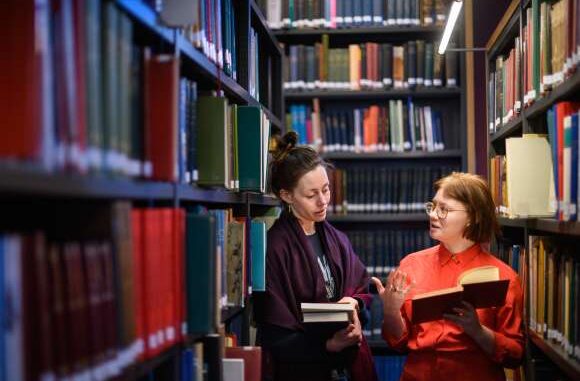
Today, we present the Institute of Historical Research’s Mission and Strategy for the years 2020-2025. This is a critical moment and a critical document for those of us who cherish the past.
The strategy is the result of a rigorous examination of the Institute’s current activities, as well as extensive engagement on what the IHR should provide for historians of all backgrounds in the coming decade. The main results and conclusions of this review are summarised in today’s report. Behind this public version is a more extensive declaration outlining the means and timeframe for achieving our goals, on which IHR personnel and partners will collaborate over the next five years.
Table of Contents
The mission of the IHR
The Institute’s mission underpins this future work. The IHR, as the UK’s national history center, is a collaborative and publicly focused organization for those interested in the past in the 2020s. The Institute serves as an advocate, custodian, and innovator in this position.
We exist to champion the value and importance of history; to enable and nurture the current and next generation of historians, wherever they may be found; and to support the historical community by caring for and developing our important library and archive collections, publications, and digital resources.
We also support and develop bold and original historical research. Using our unique national and international intellectual and professional network, we connect, listen to, and advocate for historians. And we strive to involve and include researchers and the general public in all aspects of historical study.
The IHR will be at Manchester’s John Rylands Library in July 2019 as part of a series of ‘IHR@’ events bringing the Institute to historians across the UK.
Most importantly, we do it in partnership with others who are interested in history all across the world. The Institute catalyzes disciplinary and transdisciplinary thought. We bring together researchers, communities, policymakers, artists, archives, libraries, museums, and industry to produce new forms of knowledge that address current issues and intellectual concerns. The IHR, rather than any single institution, serves the national and international community of historians.
Today, there is a clear need for historically literate conversation and involvement on the most serious issues of our day. Our cultures and identities are founded on history. Historians have a responsibility not just to shed light on how these identities have evolved, but also to hold accountable those who use the past for political or other ideological reasons.
Over the next decade, the IHR will play a critical role in meeting this challenge. We will actively engage and support historians everywhere, especially those who benefit from our robust research networks, cross-sector relationships, and local expertise.
Our top priorities
The Institute specifies three priorities for sustaining and defining the field in the 2020s, in addition to its role as a gathering place and thinking space for historians. These goals are digital history, people, place, community histories, and inclusive histories.
The Institute will draw on its existing capabilities in each situation to think and operate in innovative ways that are most relevant to our current issues. The IHR, for example, is a well-known organization in the field of an advocate of technology’s significance in creating and fostering new historical research. Digital is important to all we do, and we are well-positioned to expand on this commitment in the future decade.
Our newly established Centre for the History of People, Place, and Community builds on the IHR’s reputation for urban and regional history, while also situating these histories in a global perspective and providing a unique contribution to community participation.
The Institute’s new emphasis on inclusive histories will create a welcome intellectual space for the advancement of marginalized or “silenced” histories. In this approach, we hope to redefine our understanding of what it means to be a “historian,” while also trying to guarantee that our community of historians is diverse. We’ll go into more detail about these priorities and their role in our strategy in the following weeks on this blog.
We also want to be known for our dedication to sharing our findings with a diverse audience and assisting in making history relevant and valuable to them. Our researchers have had exceptional success in reaching out to larger audiences. In 2014, all of our impact case studies were deemed exceptional or very significant, and the School’s approach to impact and research support was deemed exemplary. We are working with the university’s Public Engagement team to build a more comprehensive approach to encourage and support workers at all career levels who want to pursue opportunities in this area. We have taken preliminary initiatives (interrupted by Covid-19) to address these challenges, such as forming an advisory committee. We have a broad and worldwide postgraduate community of approximately 70 Ph.D. and 60 MLitt students. Around 15 Master’s programs are run or led by the School. The variety of possibilities appeals to applicants, and we save money by sharing teaching amongst departments whenever possible. Several of these programs involve students from other schools. Through regular participation in seminars, centers, and institutions, the School seeks to actively integrate our postgraduates into our research culture. All Ph.D. students receive a research allowance and the chance to apply for conference funding. We reserved shared office space for senior Ph.D. students. For all postgraduates, we provide a generic skills/career training program, and we organize language instruction to complement postgraduate research.

Leave a Reply